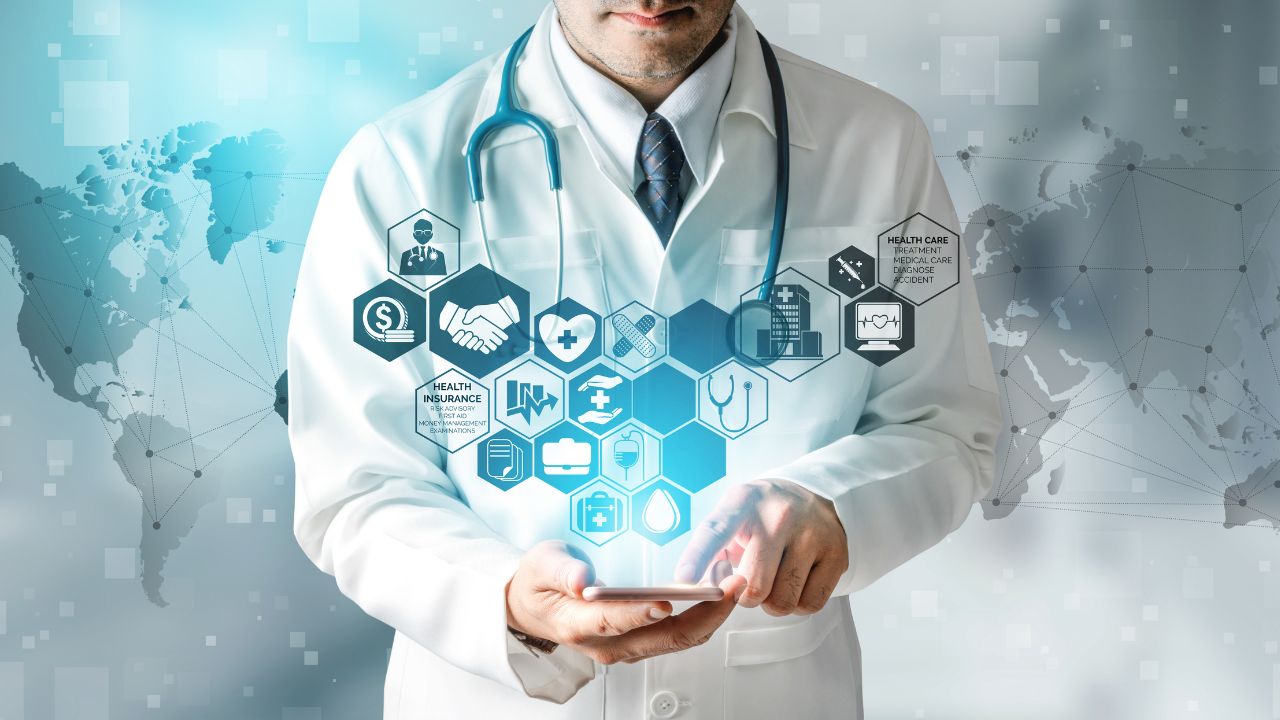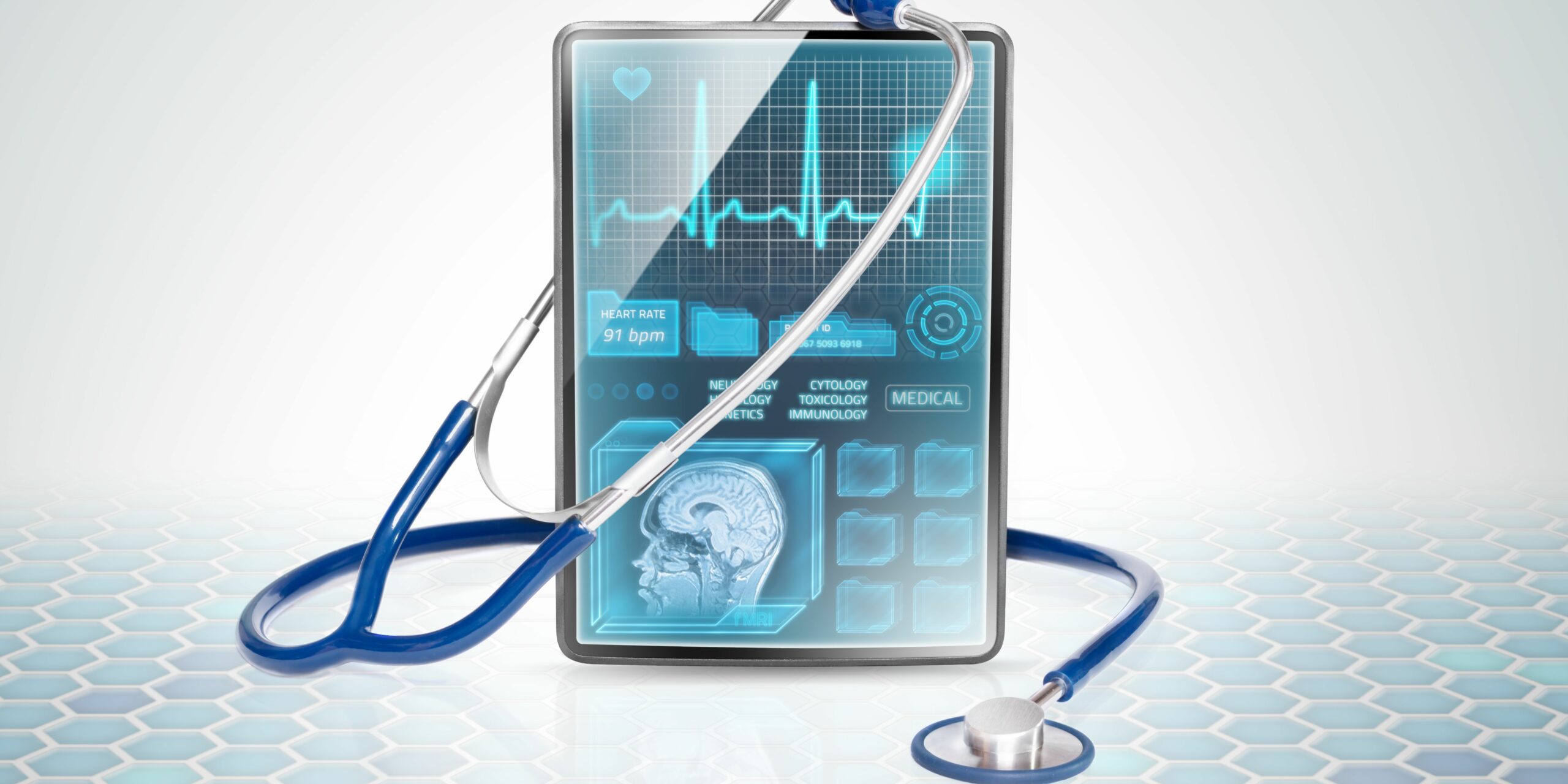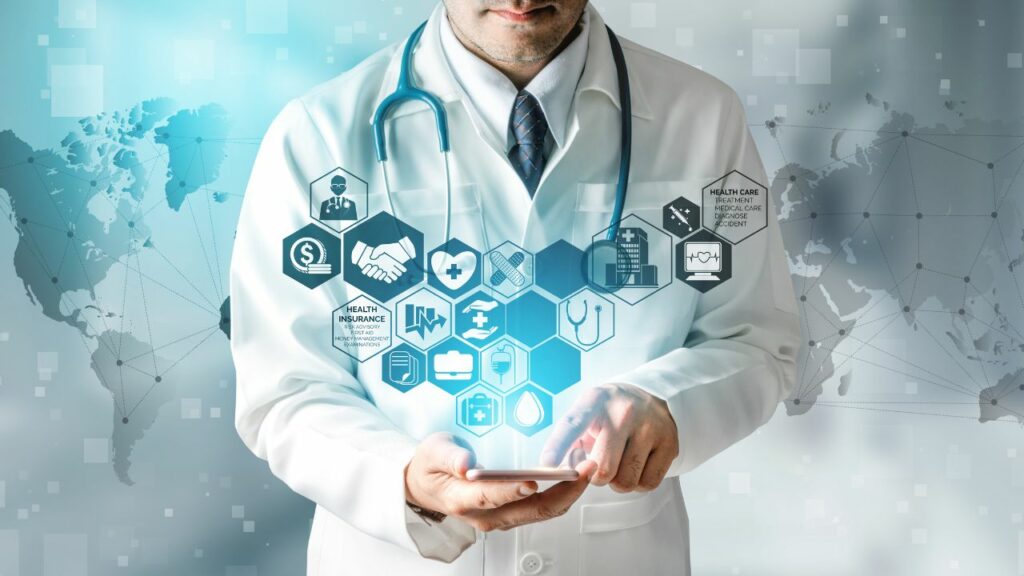 Artificial intelligence (AI) is revolutionizing healthcare and can bring several benefits for people retiring in 2024. You can know more about the benefits here boomerbenefits.com/
Artificial intelligence (AI) is revolutionizing healthcare and can bring several benefits for people retiring in 2024. You can know more about the benefits here boomerbenefits.com/
What is AI in the healthcare industry?
Technology integration in healthcare has enabled the delivery of precise, cost-efficient, and effective treatments at the most appropriate point in a patient’s treatment journey. Artificial intelligence (AI) has revolutionized the medical industry by aiding in identifying chronic diseases through imaging and risk assessment.
With the rapid growth of available data and evolving payment arrangements, patients increasingly demand more from their healthcare providers. Artificial intelligence is also poised to revolutionize the healthcare industry by serving as the driving force behind advancements in the ecosystem.
The Rise of AI in Healthcare Diagnosis
Artificial Intelligence (AI) has made remarkable progress in recent times. It can now aid in diagnosing and treating various medical conditions and track and analyze essential data.
Image Analysis
The integration of AI image analysis has revolutionized the healthcare industry by providing providers with an efficient tool for diagnosing medical conditions. Integrating AI algorithms in medical imaging analysis has revolutionized healthcare by enabling faster and more precise detection of diseases and abnormalities in X-rays, CT scans, and MRIs.
Clinical Decision Support
The healthcare industry is witnessing a surge in adopting AI-powered clinical decision-support systems. AI-powered systems are revolutionizing healthcare by leveraging algorithms to analyze patient data, including medical history, lab results, and vital signs. These systems provide healthcare providers with valuable recommendations for diagnosis and treatment, ultimately improving patient outcomes.
Predictive Modelling
Integrating AI-based predictive modeling is transforming the healthcare industry’s approach to patient care. Artificial intelligence (AI) algorithms have the potential to revolutionize healthcare by leveraging vast amounts of patient data, including medical history, lab test results, and demographic data, to predict the probability of medical conditions and estimate the risk of upcoming medical problems.
Personalized Medicine
Artificial intelligence algorithms have revolutionized the healthcare industry by enabling the analysis of patient data to develop personalized treatment plans. This technology has transformed how medical professionals approach patient care, allowing for more accurate and efficient diagnoses and treatment options. By leveraging AI algorithms, healthcare providers can now offer tailored treatment plans that can meet each patient’s unique needs. Also, personalized medicine generated by AI has the potential to enhance treatment effectiveness and minimize side effects by considering individual patient factors such as medical history, genetics, and lifestyle.
Medical Research
Medical research, especially medication development, is increasingly using AI. AI algorithms can analyze massive disease biology data to identify drug targets and predict drug efficacy, which could transform drug discovery. AI could change the pharmaceutical sector by improving drug design and development. This cuts drug development time and expense.
How is AI improving the healthcare sector in general?

The integration of AI in healthcare has transformed treatment methodologies and data acquisition, with the primary objective of enhancing patient outcomes. Data collection is crucial in diagnosing complex diseases, leading to more effective treatment procedures.
Health monitoring with mobile devices and wearables
Sensor-equipped devices make health data collection and analysis easy. Most people now have smartphones with fitness trackers and wearable heart rate monitors. Smartphones, smartwatches, and other mobile devices are generating more health data.
Data analytics and personal diagnostics can also reveal community and individual health. This data can enhance health outcomes by showing health trends. Artificial intelligence helps extract insights from large data sets, making it increasingly crucial in health. AI has transformed medical diagnostics.
Help with clinical decision-making.
Artificial intelligence in healthcare could streamline complicated and time-consuming activities, resulting in more personalized therapy and diagnosis solutions for patients. Using AI, medical professionals may automate routine tasks and provide customized responses. AI has revolutionized disease diagnosis, allowing for faster and more effective treatment.
Reduces operating costs
Artificial intelligence has the potential to revolutionize medical diagnosis by significantly reducing costs. By leveraging AI, medical professionals can perform the same diagnostic tasks at a fraction of the initial cost. Artificial Intelligence can sift through vast amounts of images to detect signs of illness. The technology eliminates the necessity for laborious physical tasks, saving time and effort. Implementing advanced medical technologies has significantly improved patient care, reducing hospital admissions, shorter wait times, and decreased bed occupancy rates.
Contributes toward safer surgeries
AI has revolutionized surgical aid in healthcare robotics. Surgeons can now do delicate procedures in small spaces without open surgery, thanks to technology. On the other hand, robots can reduce blood loss, infection risk, and postoperative pain in fragile organs and tissues. Robotic surgery reduces scarring and speeds recovery. The treatment requires tiny incisions.
Better and enhanced patient care
Overcrowding and mismanagement in hospitals cause poor patient experiences. A recent survey found that 83% of patients consider poor communication the worst part of their medical experience. Healthcare AI can also streamline data scanning, report gathering, and patient referrals. This can greatly minimize healthcare chaos. AI technology in healthcare is available 24/7, offering patients unmatched benefits.
Seamless exchange of information
The ease of information sharing is a substantial benefit of incorporating AI into a medical diagnosis. Artificial intelligence has revolutionized the healthcare industry by enabling more efficient patient data tracking than traditional methods. This allows doctors to focus more on providing effective treatments to their patients. Algorithms play a crucial role in unlocking the full potential of AI and precision medicine by enabling rapid assessment of vast amounts of data.
Optimize and streamline population health management.
Implementing AI-powered solutions has enabled the monitoring of population health and wellness. Healthcare data analytics systems can process vast amounts of information from various sources, such as health insurance claims and medical records. These systems can extract valuable insights that clinicians and patients can utilize to develop effective solutions. Healthcare providers can now create personalized health plans for their patients by considering their health risks, environmental factors, lifestyle choices, and overall well-being. This approach helps to develop tailored health programs that cater to each patient’s unique needs.
The Future of AI in Healthcare Diagnosis

In the coming years, healthcare will become more proactive. Patient health will be addressed through early and preventive action. AI will alter doctor-patient interactions. AI allows clinicians to personalize care for each patient. This method has the potential to improve both health and efficiency.
AI provides more targeted diagnostics.
A learning network requires artificial intelligence to classify and evaluate healthcare data. Unstructured healthcare data is different. Intelligent systems that learn from data and create predictions need structured learning, which uses Machine Learning (ML), a Neural Network System, and Modern Deep Learning. On the other hand, structured Learning lets us build powerful algorithms to analyze vast amounts of data and solve difficult problems. Tech experts require systematic instruction to design new software or hardware. NLP handles unstructured data.
Machine Learning techniques (ML)
Machine Learning is a cutting-edge technique that uses analytical algorithms to extract patient characteristics from all the data collected during a healthcare provider’s visit. Healthcare requires structured data. It includes physical exam findings, drugs, symptoms, basic metrics, disease-specific data, diagnostic imaging, gene expressions, as well as laboratory testing. These features help patients understand their health and also make educated care decisions.
Neural Networks & Modern Deep Learning
Supervised Learning dominates healthcare machine learning. Supervised learning algorithms use a patient’s physical features and an extensive breast cancer gene database to provide a particular result. Modern Deep Learning goes deeper than classical Machine Learning.
Deep Learning uses a computerized neural network to process information. A hidden layer in this network simplifies communication. This technology helps doctors narrow potential diagnoses, leading to a more definitive diagnosis.
Natural Language Processing (NLP)
Structured data methods, like NLP, focus on all unstructured clinical data. Clinical notes and speech-to-text processing from practitioner visits provide this data. They include Physical examination narratives, laboratory reports, and exam summaries.
Natural Language Processing also helps diagnoses with disease-related terms from historical datasets. These methods can improve patient diagnosis, save time for the doctor, and speed up therapy. Faster, more targeted, and more specific diagnoses help patients recover quickly.
AI can be integrated into major disease areas
Early stroke detection
A new tech study used AI algorithms to predict stroke symptoms in at-risk patients. The algorithms accurately identify early-stage patients by assessing their symptoms, as well as genetic history. A movement-based technique can document abnormal patient physical activity, activating an alert system. Using a trigger alert system, medical personnel can speed illness evaluation through MRI/CT scans.
Forecasting kidney disease
Clinicians struggle to diagnose acute renal sickness, which rapidly worsens and becomes life-threatening. Healthcare providers can now predict and detect critical kidney illness before it occurs.
Cancer Research and Treatment
AI has improved radiation therapy and cancer research. Without a digital database, radiation therapy has struggled in cancer research and treatment.
Predictive analytics
By examining a patient’s medical history and linking symptoms to chronic family diseases, AI technology can help clinicians detect and treat life-threatening illnesses.
AI can be used in patient engagement and adherence applications
With individualized counseling and reminders, AI-powered apps can enhance patient adherence and health outcomes. AI can improve patient engagement and detect noncompliance. Apps powered by AI can help caretakers analyze patient behavior. This decreases noncompliance. AI can promote healthcare efficiency by increasing patient involvement and adherence.
AI in Healthcare Diagnosis: Barriers to Adoption
Despite AI’s undeniable potential in healthcare, adoption could be faster. In a study, the Brookings Institute highlighted four challenges to AI adoption in healthcare: data access restrictions, algorithmic limits, incentive misalignment, and regulatory barriers.
Data access limitations
The absence of data is one of the significant challenges to AI adoption in healthcare. AI-powered applications require enormous volumes of data to be effective. Unfortunately, many healthcare organizations lack the needed data sets. To overcome this hurdle, healthcare businesses must begin investing in data gathering and administration.
Algorithmic limitations
Algorithms are only as good as the data that trains them. Some sophisticated algorithms make it difficult for healthcare providers to grasp how AI arrives at specific recommendations. This has severe consequences in healthcare, as AI makes patient care choices. Trust in technology is critical, primarily when doctors and hospitals are held accountable for their judgments based on the AI tool they use.
Misalignment of incentives
Hospital leadership and decision-makers determine AI deployment in healthcare systems. Physician-led and administration-led hospitals have also adopted AI to differing degrees. Administration-led hospitals are more open to non-clinical AI use than physician-led hospitals.
Regulatory barriers
Healthcare is highly regulated, but there are no defined AI guidelines, which need to be clarified. Healthcare businesses worry about breaking patient confidentiality by sharing data with AI-powered technologies. This is a legitimate concern, but it shouldn’t stop healthcare AI from being employed.
How is AI being used in the field of medicine and healthcare?
AI (Artificial Intelligence) is being applied in healthcare in various ways, from improving patient care to medication development. Medical imaging, diagnostics, drug discovery, personalized medication, virtual nursing assistants, predictive analytics, as well as administrative chores are ways AI integrates into healthcare.
Artificial intelligence (AI) alters the healthcare industry by improving patient outcomes, increasing efficiency, and lowering costs.
How does AI help with early diagnosis?
AI can provide various advantages in early detection by displaying any hazards that an individual may have. One of the most significant benefits of AI or machine learning systems is that they will be the driving force behind population screening. Currently, this is mainly directed at lung cancer screening, and there is also evidence that mass screening programs might be effective. This opens the door to mass screening for various types of cancer and chronic disorders.
What is the future of AI in healthcare? How will it change the way we diagnose and treat diseases?
AI can improve medical diagnosis and treatment by accelerating and boosting accuracy. It also detects patterns and anomalies doctors miss in medical imaging. Accurate cancer and heart disease diagnoses can save lives. AI can also find new and repurposed drugs to speed up drug development. This can boost drug development and patient outcomes. Virtual assistants can answer questions, remind patients to take their medications and also provide healthcare resources.





